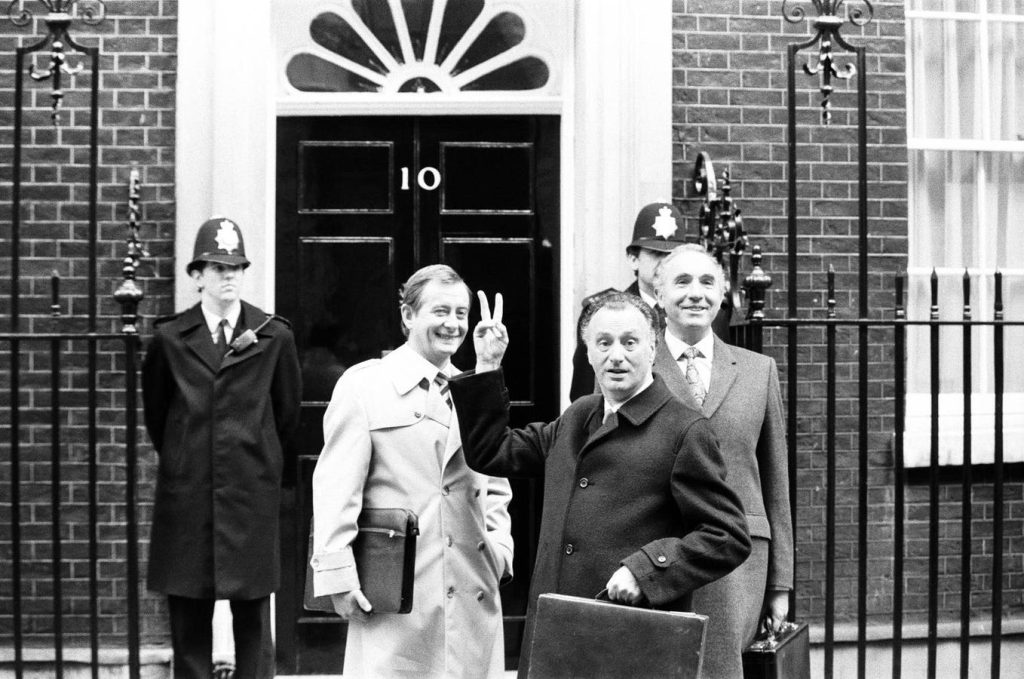Britain’s Economic and Political Crossroads: A Nation in Search of its ‘Brian’ Moment
Britain finds itself at a critical juncture, grappling with economic stagnation, political uncertainty, and a diminished global standing. The shadow of Brexit looms large, exacerbating existing economic woes and contributing to a sense of national malaise. Real wages remain stagnant, productivity has plummeted to historic lows, and the government struggles to rein in a ballooning fiscal deficit. The bond market, a barometer of economic confidence, remains volatile, reminiscent of the turbulent days of the short-lived Liz Truss administration. While not facing the same depth of economic challenges as Germany, Britain’s economic outlook remains precarious.
On the international stage, Britain’s influence appears to be waning. While it maintains a strong stance in support of Ukraine and retains its permanent seat on the UN Security Council, Brexit has left it isolated from the European Union, and the "special relationship" with the United States seems to have frayed in the politically charged era of Trump 2.0. This geopolitical limbo leaves Britain searching for its place in a rapidly evolving world order.
However, Britain has a history of reinventing itself, and there is a glimmer of hope that a leader will emerge to navigate the country through its current predicament. This individual, a modern-day "Brian" in the spirit of Monty Python, would possess the charisma and vision to inspire change and set the nation on a new course. While figures like Nigel Farage and Keir Starmer have yet to demonstrate such transformative potential, the possibility remains that a leader with the necessary qualities will emerge from the political landscape.
Traditionally, Britain relied on a robust and experienced civil service, often depicted satirically as "Humphreys" after the fictional character Sir Humphrey Appleby from the classic television series "Yes, (Prime) Minister." These civil servants, adept at navigating bureaucratic complexities, often shielded politicians from the direct levers of power. In times of economic prosperity, their role was to maintain stability and prevent political interference. However, in the current climate of economic stagnation, stemming from a lack of investment in both capital and skills, Britain needs more than just steady management; it requires innovative solutions and bold leadership.
Recently, two promising developments have offered potential pathways to revitalization. The first is a series of insightful analyses by LongView Economics, which diagnose Britain’s economic ailments as stemming from excessive regulation and bureaucracy (manifested in record-high government spending), a decline in risk capital, and an over-reliance on financialization. The second is the unveiling of the UK AI Opportunities Action Plan, spearheaded by venture capitalist Matt Clifford with contributions from AI luminaries like Sir Demis Hassabis. This plan stands out as a practical and well-conceived framework for harnessing the potential of artificial intelligence.
LongView Economics proposes key reforms, including overhauling the National Health Service (NHS) and streamlining government bureaucracy to address the issues of overregulation and inefficiency. These recommendations resonate with the current economic climate, where streamlining operations and fostering innovation are paramount.
The UK AI Opportunities Action Plan, while arriving amidst the fanfare surrounding massive AI investments by tech giants, deserves significant attention. Its fifty recommendations, endorsed by the government, focus on providing AI models with access to high-quality data (through copyright law reform), boosting investment in data centers, and establishing an AI Energy Council to address the energy demands of these centers. The plan also envisions a national data library and the integration of AI within the NHS. These initiatives aim to position Britain at the forefront of the AI revolution.
A particularly striking aspect of the AI plan is the introduction of AI assistants, dubbed "Humphrey," to enhance public services. These tools aim to improve efficiency and data sharing across government departments, with the ambitious goal of saving £55 billion, a sum that could significantly reduce the budget deficit. While the ambitious nature of these proposals raises questions about their feasibility, the Labour government now possesses a blueprint for investment and potential economic transformation. The success of these initiatives will depend largely on the government’s ability to effectively implement them and foster a climate conducive to innovation and growth. The coming years will reveal whether Britain can successfully navigate these challenges and reclaim its position as a global economic leader. The question remains: Will Britain seize this opportunity for transformative change, or will it remain mired in its current predicament? The nation’s future hinges on its ability to find its "Brian" and embrace the potential of innovative solutions.











